Have you heard about Russian imperfective and perfective verbs? We call this grammatical category verb aspect.
Almost every Russian verb has a pair with the same general meaning. For instance, there is a pair ЧИТАТЬ (to read, imperfective) – ПРОЧИТАТЬ (to read, perfective). So, what’s the difference between these two forms? And how do we know which form of the verb (imperfective or perfective) to choose?
In short, we use the imperfective aspect when we talk about a process (similar to English continuous tense), or about a repeated action. We also use it when it’s not important if an action was resultive or not, repeated or not: we just want to say that an action has taken place (or took place).
For example:
Он долго (for a long time) читал. (this is a process)
Он часто (often) читал. (repeated action)
Он каждый день читал книги. Он никогда (never) не читал эту книгу.
Что он делал вчера? - Он читал. (не писал письмо, не работал etc, а читал)
Он читал (has he ever read) эту книгу? - Да, читал. / Нет, не читал.
On the contrary, we use the perfective aspect when talking about the result of an action, or if we want to emphasize the completion of an action, or we talk about something that happened only once, at some moment.
For example:
Он прочитал эту книгу. (up to the end; completed action; happened once)
Он прочитал пять книг. (result)
You’ll certainly see the difference between imperfective and perfective forms more clearly if you watch these two videos:
And now you can learn and practice imperfective and perfective forms of the most common Russian verbs HERE, HERE and HERE.





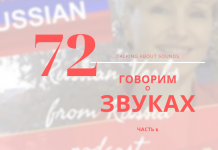
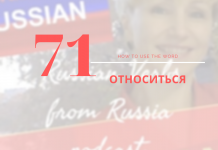
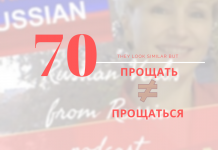

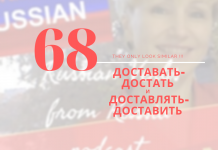






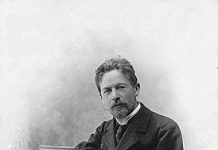








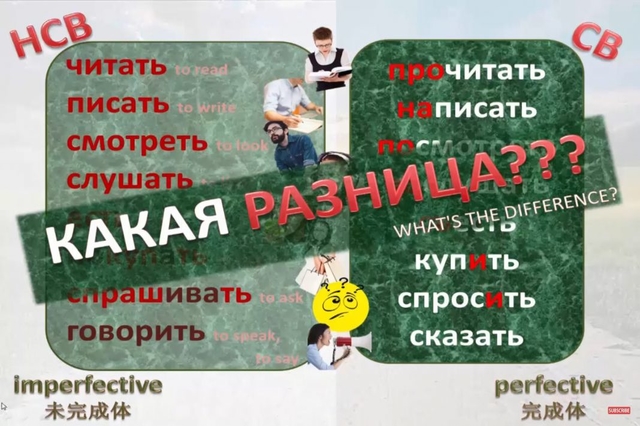



![Is Russian difficult? [5 interesting facts] Is Russian difficult](https://www.russianfromrussia.com/wp-content/uploads/2019/07/Is-Russian-difficult-lang-218x150.jpg)

